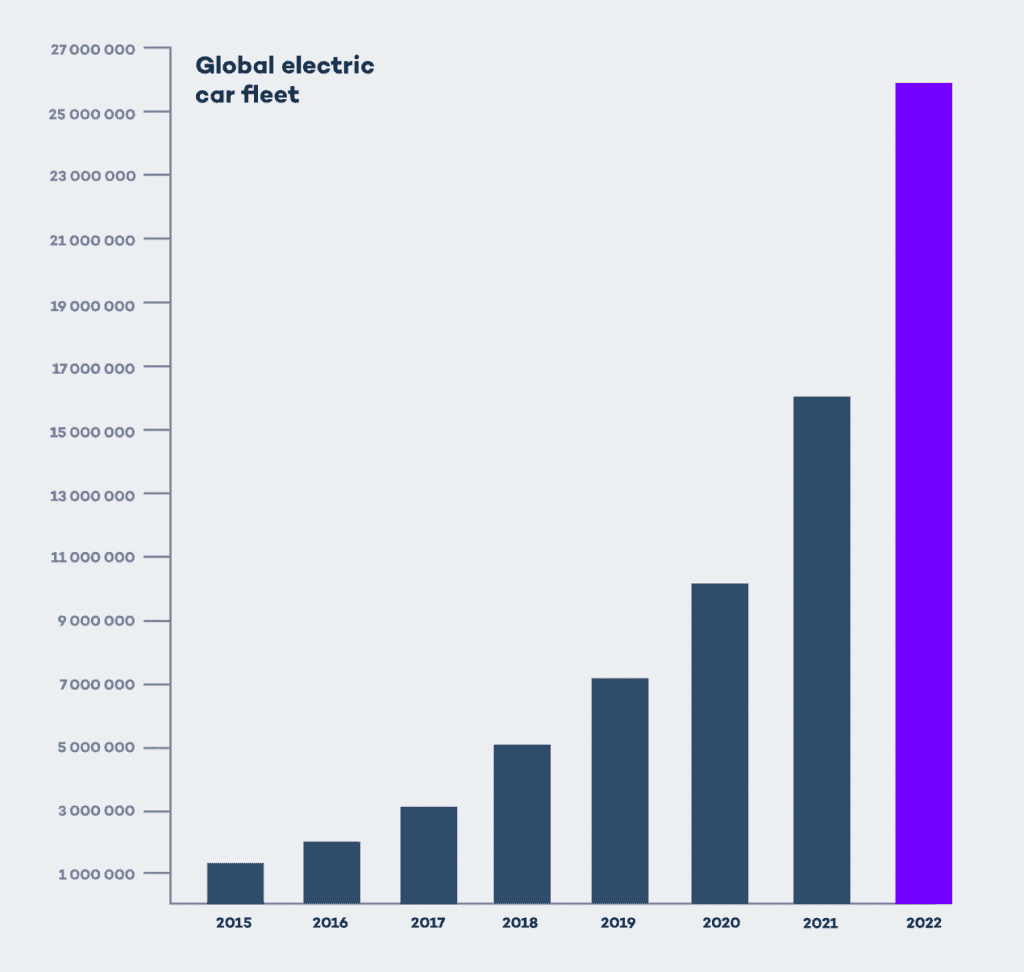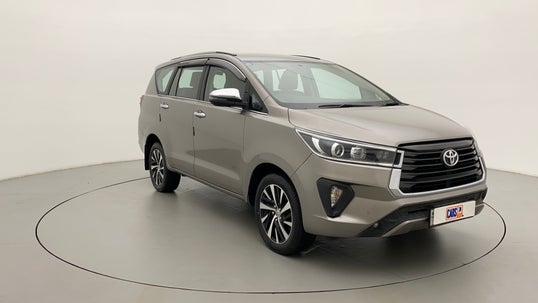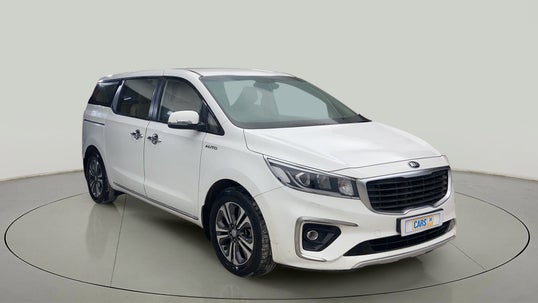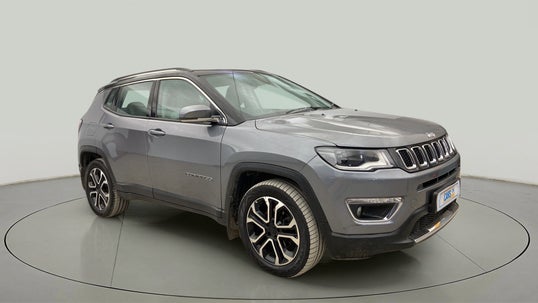Advantages and Disadvantages of Electric Cars: Can Electricity Triumph Over Petrol?

Updated on: 29th February, 2024 IST

Imagine a world where cars are not the villains that leave behind carbon emissions; instead they glide noiselessly through the streets, guilt-free. Surprisingly, this world is well within our reach owing to the increasing popularity of a new breed of cars—EVs!
EVs or electric vehicles are free from the shackles of carbon-emitting fuels and offer benefits like reduced running costs and lower emissions. With 2.3 million EVs sold globally in the first quarter of 2023 alone, a shocking 14 million more are expected to be sold by the end of the year.


Source: Global EV Outlook 2023
However, just as any other new and exciting technology, EVs too come with their own set of limitations and challenges. So, let’s buckle up and take a look at the advantages and disadvantages of the future of mobility!
Read More : Upcoming Electric Cars Under 8 lakh in India in 2023
Table of Contents
What is an Electric Vehicle?
An electric vehicle or EV is a vehicle that is either fully or partially, electrically powered. What makes EVs different from conventional vehicles is that they use very little or no fossil fuel to run. Instead, electric cars come equipped with lithium ion batteries that are durable and retain more energy compared to other batteries.
Electric vehicles use an electric motor to convert electric energy from a battery to power vehicles and have thus emerged as a more sustainable alternative to conventional vehicles. These can be charged at a charging station and cost as low as ₹3-₹8 per unit.
Electric modes of transportation include cars, aircraft, and spacecraft, and are often equipped with autonomous driving technology and shared mobility that promises an incredible driving experience.
Read More : How Do You Decide Between A Hybrid and Electric Car?
What are the Advantages of Electric Vehicles?
Electric cars are sustainable and extremely popular among consumers across the globe. If you’re currently using a petrol or diesel powered car, it is natural for you to be cautious before switching to an electric vehicle. However, EVs come with a host of benefits and here’s a look at some of them.
1. Lower Running Costs
Electric vehicles have a much lower running cost compared to their petrol and diesel counterparts. Since EVs use electricity to power their batteries, their running cost is ₹1.2-₹1.4 per km, while petrol cars have a running cost of around ₹9-₹10/km.
Picture this: over 6 to 8 years, you will spend just over a lakh to charge your electric vehicle!
2. Low Maintenance Costs
Electric vehicles have a very low maintenance cost due to lesser moving parts. You don’t need to service EVs as much as petrol or diesel cars so the yearly maintenance expenses are far lesser. Taking the Nexon EV by Tata as an example, the annual maintenance cost for this car can be as low as ₹2,817!
3. No Tailpipe Emissions
An electric vehicle reduces your carbon footprint because it produces practically zero emissions! If you choose to charge your car at home, you can further reduce your carbon footprint by minimising charging costs.
4. Tax Benefits
Road tax and registration fees on electric vehicles are lower compared to petrol and diesel cars. The government also offers multiple incentives and policies in different states in India, such as:
- Purchase Incentives: Direct discount offered on the cost of the electric vehicle
- Coupons: Financial incentive where the amount is reimbursed later
- Interest Subventions: Discount offered on the interest rate while availing loans
- Road tax exemption: Road tax at the time of purchase is waived off
- Registration fee exemption: One-time registration fee applicable on a new vehicle purchase is waived off
- Income tax benefit: Available as deduction on the tax amount payable to the government
- Scrapping incentives: Available after deregistering old Petrol and Diesel Vehicles
- Others: Interest-free loans, top-up subsidies, special incentives on electric three-wheelers, etc. are available depending on which state you’re in.
FAME, or Faster Adoption and Manufacturing of (Hybrid and) Electric vehicles, is India’s flagship scheme for encouraging the use of electric vehicles. Presently in its 2nd phase of execution, FAME-II has been launched for a period of 3 years from 1st April 2019 with a budget allocation of ₹10,000 Crore.
Let’s have a look at some of the incentives under FAME-II:

5. Easy to Drive and Silent
Driving an electric vehicle is quite like playing a racing game on the Playstation! If you’re wondering why, it’s because EVs don’t have gears! All you have to do is accelerate, steer, and brake when necessary.
Due to the absence of a fuel-powered engine under the hood, electric vehicles are extremely silent on the road. Often, automobile manufacturers add false sounds to EVs to make them safer for the road.
Read More : Upcoming Electric Cars Under 15 Lakhs in 2023
What are the Disadvantages of Electric Vehicles?
Electric vehicles are sustainable, efficient, and cost-friendly, and while EVs have been around for a while and improved remarkably, they still come with a few challenges that need to be addressed. Here’s a look at the disadvantages of electric vehicles.
1. Limited Battery Range
While petrol and diesel cars offer an average range of 800 km, electric vehicles have a limited range of 400 km on a fully charged battery. This may not be an issue unless you’re someone that drives long distances on a regular basis.
2. Low Battery Lifespan
EV manufacturers globally claim that an electric vehicle’s battery will last between 8-12 years. However, this also requires cautious driving and charging habits. You must also keep an eye on your car’s maximum battery capacity. If this drops below 70%, the battery needs to be serviced or replaced.
3. Long Charging Times
While filling up a petrol or diesel tank takes under five minutes, charging an EV takes between 30-60 minutes using rapid chargers. However, if you charge your car at home using a domestic battery charger, it may take you hours to recharge your car’s battery.
CARS24 Car Tip: Always look for fast-charging stations along the route if you’re on a road trip or weekend getaway. This saves you time (charging using a 150kW is much faster compared to a 15kW one) and also keeps you prepared to stop and charge your battery.
Electric Vehicles: Pros and Cons
| Pros | Cons |
| Produce zero emissions | High initial cost especially for top variants |
| EVs protect fossil fuels from depleting by using electricity (battery-powered) | Fewer alternatives in terms of car designs, models, features, etc. |
| Smooth and silent driving due the absence of an engine | High charging time |
| Tax concessions given by the government | Only suitable for short journeys |
| Lower maintenance and servicing costs | Batteries are expected to have a low lifespan |
Read More : Upcoming Electric Cars in India Under 20 Lakhs – 2023
The Bottom Line
Electric cars are a wonderful choice for people who need a car to run their everyday errands while also being sustainable and economical. Besides the obvious benefits of low maintenance costs and tax perks, EVs are quite responsive and effortless to drive.
Therefore, if you buy the right EV model and conduct some due diligence on the whereabouts of charging stations around you, an EV might be an excellent choice for you.
FAQs
Q. What are some common problems with EV batteries?
EV batteries are known to get overheated quite frequently and require maintenance if it drastically reduces the driving range or charge in the process.
Q. How safe are electric vehicles? Do they set fire to themselves?
Electric vehicle fires are very rare and the risk of the same is lower compared to petrol/diesel cars.
Q. What is the failure rate of EV?
One in five electric vehicles failed to charge in the first attempt, according to a survey in 2021. However, EV models have improved since then and the installation of high-quality fast chargers have made it easier to charge electric vehicles.
Recently Added Cars to Buy
Other Blogs
- Recent
- Featured
Popular Cities to Sell Car
























